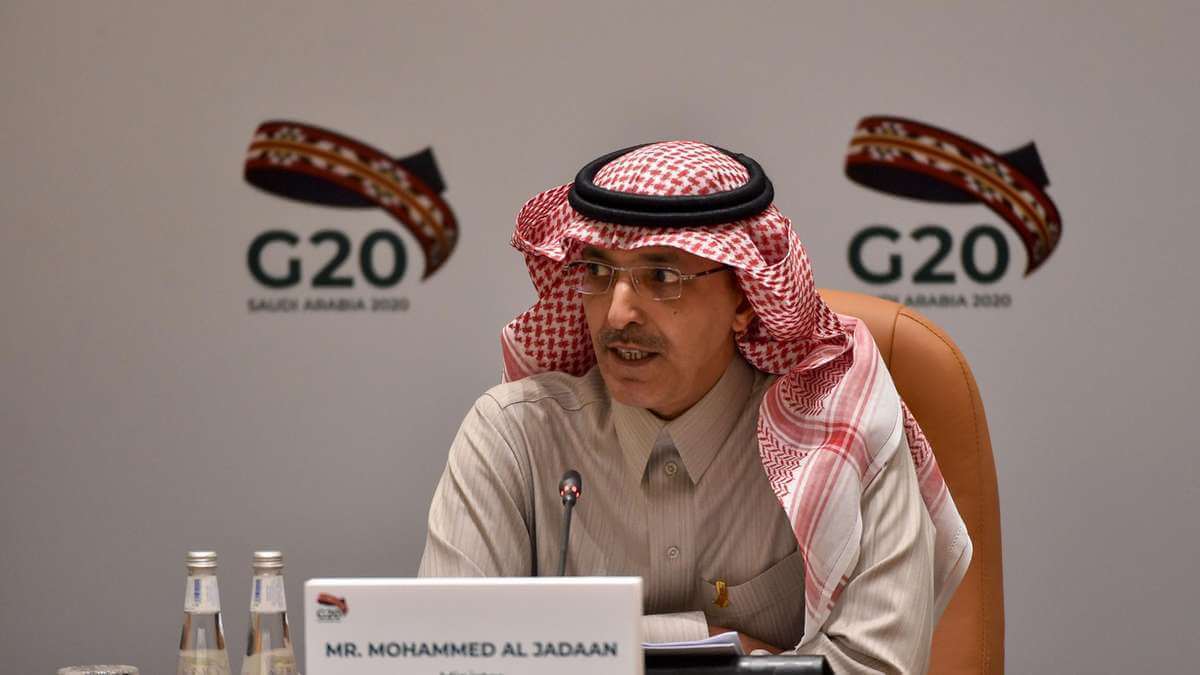The Group of 20 (G-20), which comprises of the world’s biggest economies, announced a suspension on debt payments for a further six months in a bid to relieve the economic burden placed by the ongoing coronavirus pandemic on the poorest nations.
As it stood, over $14 billion was owed to the G-20 countries by the end of the year. However, the extension will now give developing nations until the end of June 2021 to make these repayments. The provision is being offered to 46 of the 73 countries eligible and there are plans to extend to additional countries as well.
The announcement was made following a meeting between the member-states’ finance ministers and central bank governors and come ahead of meetings at the International Monetary Fund (IMF) and the World Bank.
Mohammad al-Jadaan, Saudi Arabia’s finance minister, said, “We still need to do more,” adding, “We must ensure these nations are fully supported in their efforts to tackle the COVID-19 pandemic.”
Critics of the plan, such as Oxfam International, argue that debt suspension is the “bare minimum” and not enough to alleviate the pressure on thee countries and that instead the world’s richest countries should either extend the suspension for more than a year or forgiving part of the debt.
In fact, Saudi Arabia’s finance minister revealed that during the next meeting in April 2021, members would deliberate on whether to extend the suspension for another six months.
However, prior to the meeting, it appeared that some creditor countries had been unwilling to extend debt relief for a whole year. In fact, World Bank President David Malpass said, “I think there may be compromise language that may be a six-month extension [and] that it can be renewed depending on debt sustainability.”
In total, bilateral debt to G-20 countries stand at over $180 billion, with 63% of this owed to China. This is largely due to the rapid expansion of China’s Belt and Road Initiative, as China’s share stood at just 45% in 2013.
At the same time, private creditors have been reluctant to offer the same respite, a point which was reiterated by IMF Managing Director Kristalina Georgieva, who described the private sector’s reticence to offer debt relief as “regrettable.” She worries that this will increasingly deter developing countries from borrowing money from the private sector out of “fear that that may erode their future access to markets”, which in turn may further slow down their development.
At the G-20 summit in April, member countries launched a Debt Service Suspension Initiative (DSSI) until the end of 2020 due to the economic damage wrought by the coronavirus pandemic, particularly on developing countries.
Then in June, in an open letter, over 225 former national leaders, medical experts, and academics have urged the G20 to approve a $2.5 trillion COVID-19 recovery package to help poor and middle-income countries–which comprise of roughly 70% of the world’s population–limit the economic impact of the ongoing crisis.
They warned that without the leadership of the G-20 nations, which account for 85% of the world’s GDP, a far-reaching recession that will damage all economies is certain. This will harm the “world’s most marginalized and poorest peoples the most.”
A few days later, Chinese Vice Foreign Minister Ma Zhaoxu announced the suspension of debt repayments for 77 low-income and developing countries, signaling China’s commitment to the G-20 debt relief program that was agreed to on April 15.
China has come under increasing scrutiny over the last few years for practicing what critics call ‘debt-trap diplomacy’, wherein its BRI has arguably compromised the sovereignty of low-income countries, particularly in Africa.
It is hoped that this latest announcement by the G-20 will build on existing debt relief initiatives to provide a much-needed reprieve to the world’s poorest nations.
G-20 Extends Debt Suspension to Developing Countries by an Additional Six Months
The extension will now give borrowing nations until the end of June 2021 to make these repayments.
October 16, 2020

IMAGE SOURCE: FAYEZ NURELDINE / AFP VIA GETTY IMAGESSaudi Minister of Finance Mohammed Al Jadaan
